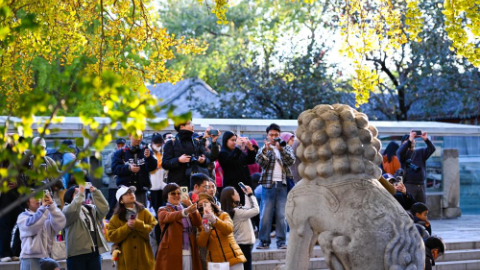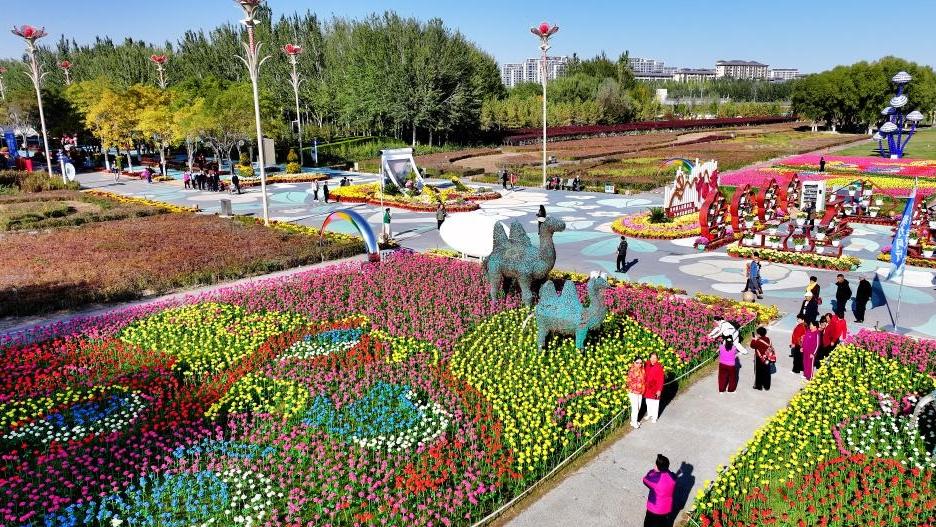Most desired vision of GGI is a future of fairness: Chinese FM
Member of the Political Bureau of the CPC Central Committee and Minister of Foreign Affairs Wang Yi attended and addressed the opening ceremony at the Lanting Forum on Improving Global Governance to Build a Community with a Shared Future for Humanity on Monday, during which he elaborated on the comprehensive connotations of the Global Governance Initiative (GGI) and its practical pathways.
Wang said that as the dregs of unilateralism are stirring up again, and global challenges are emerging one after another, how to reform and improve global governance to make it more relevant in the forthcoming multipolar world? That is a consequential question occupying minds everywhere. "Last month, President Xi Jinping solemnly put forth the GGI, offering the Chinese answer to this question of our times," he said.
Wang said the world today is witnessing more than 50 ongoing conflicts of various types, with over 100 million people displaced. Such a world, marked by transformation and turbulence, is in greater need of enhanced global governance than ever before.
Against this backdrop, Wang stressed that "the most unequivocal message from the GGI is a call for stronger solidarity," "The GGI represents a most powerful statement of multilateralism," and "The most desired vision of the GGI is a future of fairness."
Wang's speech resonated with the participants. Omar Razzaz, former prime minister of Jordan, said during the following discussion that the idea of "law of the jungle" - where every country does what it wants, when it wants, without having to abide by any rules - is the fastest way to global disaster. Razzaz stressed that at a time when we need solutions for challenges such as climate change, war risks, global AI regulation, and pandemics, "We have to deal with all these things, and without proper global governance, this will not happen."
During the opening remarks, Wang put forward concrete proposals outlining practical pathways to realize it.
The pathways include jointly upholding the authority and status of the UN to cement the foundation of global governance, international rules should not be applied selectively according to one's own interests; Working together to advance common development to enhance the efficacy of global governance, calling for an end to politicizing economic and trade issues, to fragmenting the global market, and to reckless decisions to wage trade and tariff wars; Stand together to tackle pressing challenges and shore up the weak links in global governance. For instance, Building a world of universal and common security is an inherent responsibility of the international community. China calls for a genuine, comprehensive and lasting ceasefire, and the implementation of "the Palestinians governing Palestine" principle as well as the two-State solution for the purpose of lasting peace and stability in the Middle East.
Wang also made other proposals such as actively responding to the aspirations of the Global South and improve the global governance architecture, as well as fully leveraging the roles of diverse stakeholders and pool strength for global governance.
Hussam A. G. Al Husseini, the ambassador of Jordan to China, told the Global Times on the sidelines of the forum that global governance has always been an important issue for the world. For decades, there has been much talk about reforming the UN and the multilateral system, but very few initiatives have actually been put forward to encourage or advance such reforms. "What we are hearing today is a concrete initiative with suggestions in the implementation that can pave the way for a serious discussion on meaningful reform of the multilateral system and global governance," he said.
Hailing the forum, Erik Solheim, former under-secretary-general of the UN and former executive director of the UN Environment Programme, told the Global Times on Monday at the forum that the two main elements of the GGI were clearly unveiled during the event: first, building a global governance system that reflects the world of 2025 — marked by the rise of the Global South, including China, India, Brazil, Indonesia, and many other developing countries. Second, the global governance system should focus on delivering tangible results for people — better education, improved health, longer life expectancy, and enhanced infrastructure.
"And in all these areas, China can contribute even more than any other nation because of the efficiency of its economic system," Solheim added.
Participants attending the forum noted that the spirit of the GGI has already taken root in China's concrete international collaboration and China is demonstrating, through action, how a major power engages in equal cooperative partnerships.
Jin Liqun, the inaugural President and Chair of the board of directors of the Asian Infrastructure Investment Bank (AIIB), said during the forum that as the largest shareholder in the AIIB, China holds de facto veto power, though Jin emphasized that China has never exercised this power. He described this as the sacred model of multilateralism, saying, "If there's no consensus, I'm not going to push for it."
"I am a Chinese national, but I function as an international civil servant," Jin added.
Photos
Related Stories
- China's Global Governance Initiative help enhance representation of small nations: BiH envoy
- GGI reaffirms China as leading defender of peace
- China's vision on governance hailed globally
- China's Global Governance Initiative timely, says Kyrgyz expert
- China's Global Governance Initiative enhances core tenets of UN Charter
- Full text: Address by Chinese Premier Li Qiang at the high-level meeting on the Global Development Initiative
Copyright © 2025 People's Daily Online. All Rights Reserved.









